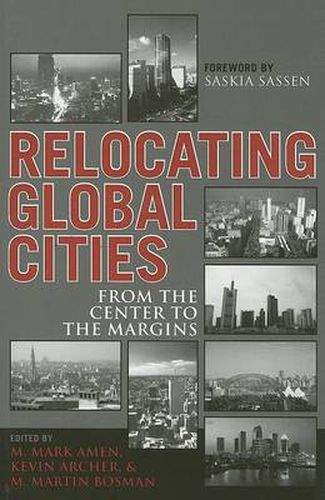Readings Newsletter
Become a Readings Member to make your shopping experience even easier.
Sign in or sign up for free!
You’re not far away from qualifying for FREE standard shipping within Australia
You’ve qualified for FREE standard shipping within Australia
The cart is loading…






Drawing on eight case studies from key cities on the periphery of global cities literature, Relocating Global Cities argues that all cities are globalizing in important ways. Case studies of Frankfurt, Johannesburg, Bangkok, Manila, Tampa, Sydney, Brussels, and Caracas provide the basis for an alternative theoretical approach to global city formation. Reconciling a market-based understanding and an agency-based understanding of global cities, this book proposes that globalization and cities are mutually constituted by the global political economy engaging with transnational and local agents. The volume proposes an alternate theoretical approach to the literature of globalization while remaining grounded in concrete discussions of key cities. Its expert contributors reconcile the conflicting ways in which two dominant paradigms, one emphasizing market forces and the other the unique actions of individuals and groups, embody our understanding of global cities. This book will be of interest to students and researchers alike, and is a perfect complement to texts in Urban Studies and Globalization.
$9.00 standard shipping within Australia
FREE standard shipping within Australia for orders over $100.00
Express & International shipping calculated at checkout
Drawing on eight case studies from key cities on the periphery of global cities literature, Relocating Global Cities argues that all cities are globalizing in important ways. Case studies of Frankfurt, Johannesburg, Bangkok, Manila, Tampa, Sydney, Brussels, and Caracas provide the basis for an alternative theoretical approach to global city formation. Reconciling a market-based understanding and an agency-based understanding of global cities, this book proposes that globalization and cities are mutually constituted by the global political economy engaging with transnational and local agents. The volume proposes an alternate theoretical approach to the literature of globalization while remaining grounded in concrete discussions of key cities. Its expert contributors reconcile the conflicting ways in which two dominant paradigms, one emphasizing market forces and the other the unique actions of individuals and groups, embody our understanding of global cities. This book will be of interest to students and researchers alike, and is a perfect complement to texts in Urban Studies and Globalization.